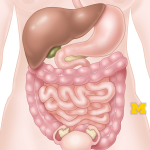Welcome to the Community Engagement in Population Health course! As you will learn, the health system is in the midst of a critical transition. The current system is not sustainable with escalating costs, mediocre health outcomes, and unacceptable disparities. This course will first discuss the current system, including definitions of population health and social determinants … [Read more...] about Community Engagement in Research and Population Health
Health
Human Health Risks, Health Equity, and Environmental Justice
The fourth and final course of the Impacts of the Environment on Global Public Health specialization will cover two topics. The first is environmental justice – that is, avoiding an inequitable distribution of environmental health threats in our population, and ensuring a healthy and safe environment and health equity for all. The second is risk assessment and management, a … [Read more...] about Human Health Risks, Health Equity, and Environmental Justice
Anatomy: Gastrointestinal, Reproductive and Endocrine Systems
In this anatomy course, part of the Anatomy Specialization, you’ll learn about the various digestive, endocrine, and reproductive organs, their functions, and pathways of nerves and blood vessels serving these organs. Clinical correlations and vignettes will be used to highlight the importance of these anatomical structures and their relationships. Images and videos from … [Read more...] about Anatomy: Gastrointestinal, Reproductive and Endocrine Systems
Advanced Neurobiology I
Hello everyone! Welcome to advanced neurobiology! Neuroscience is a wonderful branch of science on how our brain perceives the external world, how our brain thinks, how our brain responds to the outside of the world, and how during disease or aging the neuronal connections deteriorate. We’re trying to understand the molecular, cellular nature and the circuitry arrangement of … [Read more...] about Advanced Neurobiology I
Non-Communicable Diseases in Humanitarian Settings
NCDs are the leading cause of death in almost every region of the world, and place a huge burden on individuals, families and societies. Humanitarian settings have a negative effect on the levels of disease, and the possibility of treatment. The importance of NCDs in global health is acknowledged by their inclusion in the Sustainable Development Goals, which call for a … [Read more...] about Non-Communicable Diseases in Humanitarian Settings






